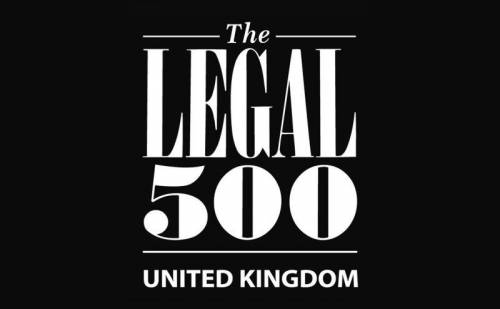My spouse has been diagnosed with dementia, what can I do?
A complicated and emotional situation
If your spouse has been diagnosed with dementia and your relationship is under strain, you may be facing one of the hardest decisions of your life. It is natural to feel conflicted. At Laurus, we speak to people in this position more often than you might expect. These are individuals who long recognised that their marriage was over, but who feel conflicted to end it formerly, given their partner’s medical condition and who are also trying to understand their legal options and plan for the future with clarity.
If you are looking for quick answers to common questions, we have created a Frequently Asked Questions guide here covering the key concerns that come up when divorcing a spouse with dementia.
A common concern is whether divorce is even possible in these circumstances. The answer is yes, although extra care is needed to ensure the process is fair, respectful and legally sound.

Understanding capacity in divorce
One of the key issues is whether your spouse has the capacity to make decisions about divorce and to take part in legal proceedings. In legal terms, capacity refers to the ability to understand information, weigh up options and make a reasoned decision and to deal with the obligations that the litigation imposes, such as financial disclosure.
Capacity is issue specific. A person may have the capacity to do some things, such as manage their daily routine, but not others, like navigating complex legal matters. In the context of divorce, we consider two distinct types of capacity. First is the capacity to understand what divorce means and to make a choice about it and the issues arising from it, like the financial settlement or about children. Second is the capacity to conduct legal proceedings.
A diagnosis of dementia does not automatically mean a person lacks capacity. If there are concerns that one party lacks capacity, a capacity assessment will need to be carried out, usually by a clinical psychologist, who will consider specific questions, for example whether someone can understand the concept of divorce and its impact on their life, finances and relationships and if they have a perception of their assets. If your spouse can engage with that understanding, even with support, they may still be found to have capacity but still need support to deal with the litigation in the form of a litigation friend.
What happens if they lack capacity?
If a spouse does not have that level of understanding, the divorce can still proceed. The court will usually require a safeguard in the form of a litigation friend. This is someone appointed to represent the person with dementia throughout the proceedings. The litigation friend could be a relative, a professional, a Trust Corporation or, as a last resort, the Official Solicitor. Their role is to ensure that the person’s best interests are protected and that their voice is fairly represented.

Insight from Counsel
Barrister Mai-Ling Savage, a specialist in family and Court of Protection matters at 4PB Chambers, offers this:
“Capacity is not a fixed state and a person’s capacity to make each decision will need to be considered and if necessary assessed. Someone with dementia may still have the ability to make decisions about their relationships. If there is a dispute about capacity a capacity assessment by an expert will be required and if it’s determined that the person lacks capacity to conduct litigation a litigation friend will be required’
A conversation on capacity, divorce and care
I recently spoke with my colleague Steven Gasser, Director of Family Law at Laurus, about how we support clients facing this situation. It is a difficult and often misunderstood area of family law, and it helps to share how we approach these cases in practice.
Jacqueline Fitzgerald: I have supported a number of clients through divorce where their spouse has been diagnosed with dementia. It is an incredibly difficult situation in which to find themselves, emotionally and practically. One of the first things people ask is, can I even get divorced if my spouse does not understand what is happening? The answer is yes, but there are important safeguards, like appointing a litigation friend.
Steven Gasser: And do most people understand what that means straight away?
Jacqueline Fitzgerald: Not at all. It is often completely new territory. People understandably assume that if their spouse has a lasting power of attorney in place, then that person can manage the divorce too. But litigation capacity is separate from capacity to manage their financial affairs. If they have a power of attorney the court will still want to have a litigation friend appointed. The attorney might be that litigation friend, but most couples will appoint their spouse, so obviously the spouse could not act in these circumstances because of a conflict of interest.
Steven Gasser: That distinction between types of capacity catches people out a lot. Do you find that clients are relieved when they realise there is still a way forward?
Jacqueline Fitzgerald: Very often, yes. There is usually a lot of hesitation and guilt at the beginning. Many clients have been in a caring role for their spouse and are emotionally drained. They are not rushing to divorce. They just need to understand what is possible. Once we explain the legal process and how the courts protect vulnerable individuals, they feel more confident taking the next step.
Steven Gasser: I think people worry that involving the courts in a situation like this might feel cold or impersonal.
Jacqueline Fitzgerald: That is a really good point. In fact, what I have found is that the court system is actually very thoughtful in these cases. It is not about forcing a process through. It is about making sure both parties are protected, especially the one who may not be able to speak for themselves. And that is why having an experienced solicitor matters. We guide our clients through not just the legal aspects, but also the emotional realities.
Steven Gasser: And for many, this is the first time they are not just dealing with a marriage breakdown, but also loss. The loss of the relationship as it was, and the person as they were.
Jacqueline Fitzgerald: Absolutely. There can be a deep sense of grief that runs alongside the legal process, not just for the couple but often for close family members. It is never just about paperwork. It is about helping someone move forward while honouring the complexity of their situation. My job is to hold that space with them and ensure they are supported every step of the way.
Moving forward with support
The key message is this. You are not alone, and you are not powerless. If you are considering divorce and your spouse has dementia, there is a legal route available to you. It is not always straightforward, but it can be done with care. At Laurus, we are experienced in guiding people through this process from start to finish. We work closely with medical professionals, the court and trusted litigation friends to ensure that everything is done properly and that your decisions are both lawful and respectful.
If you are ready to talk, or simply want to understand your options, contact me direct on jacqueline.fitzgerald@lauruslaw.co.uk or call on 020 6146 6300. We are here to listen, guide and help you make the right decisions for your future.











